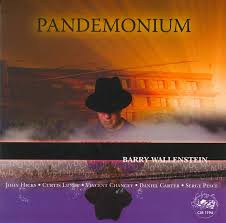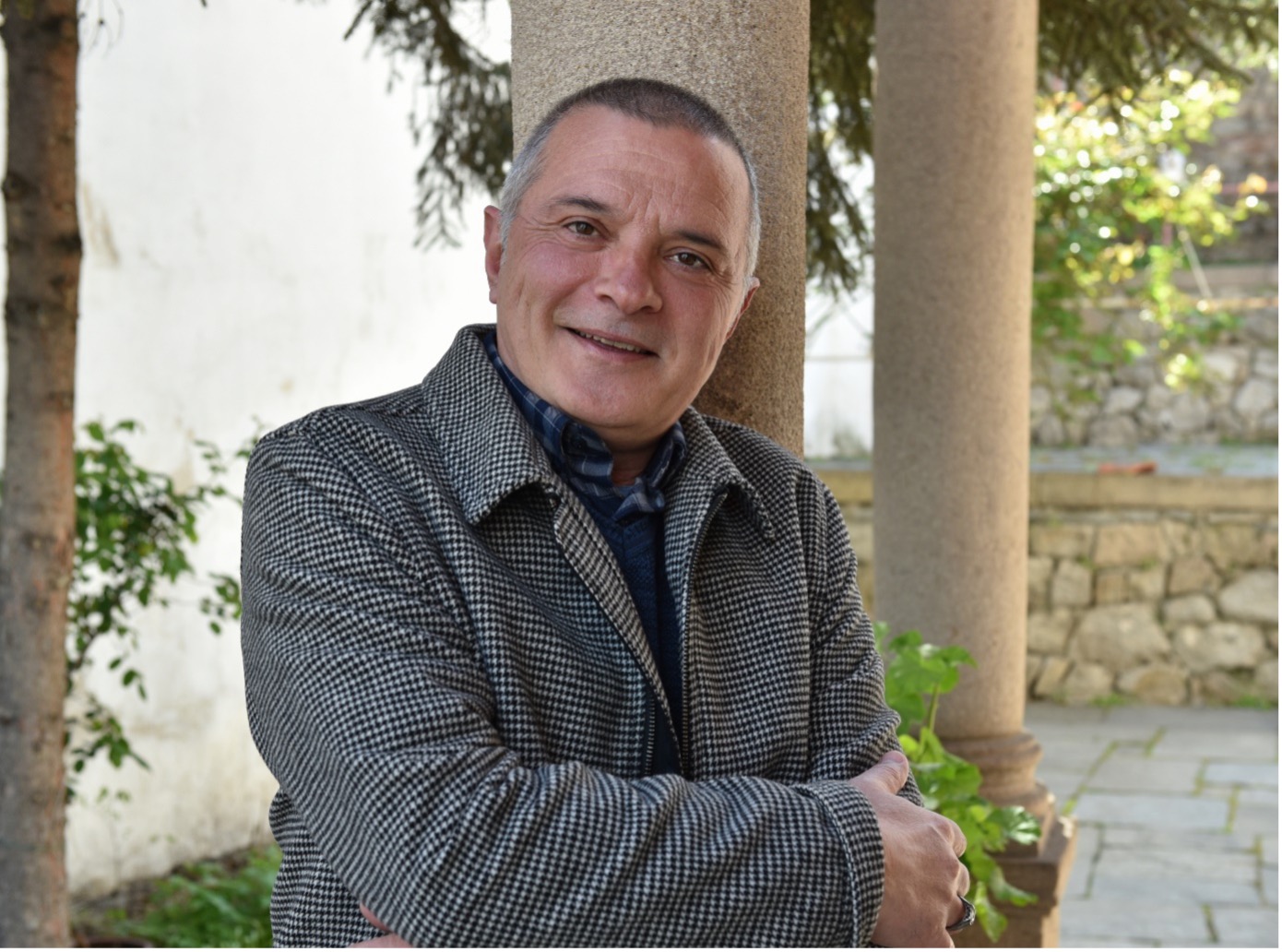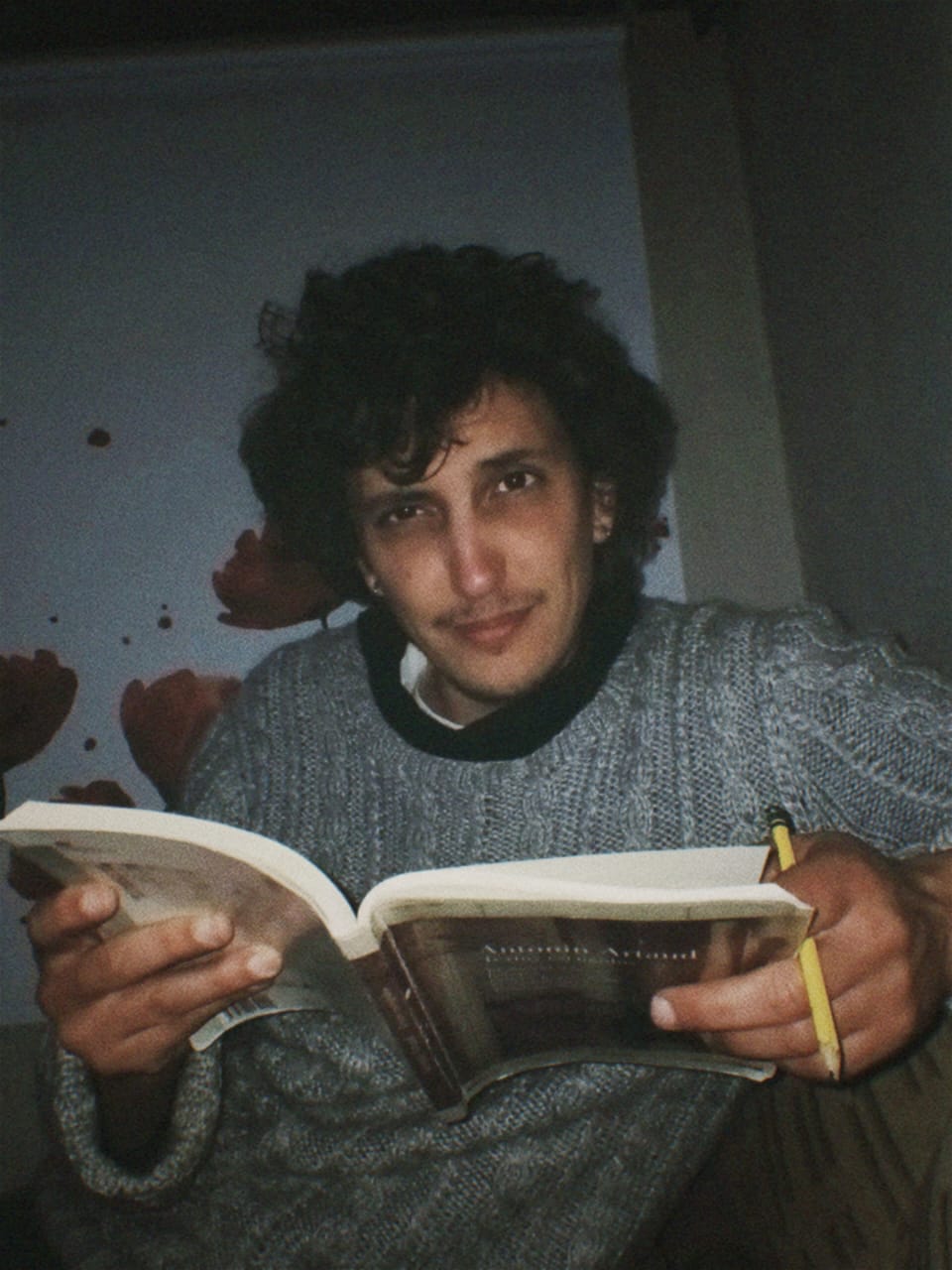Ces poèmes, traduits par Marilyne Bertoncini, et inédits en Français, sont extraits du CD Pandemonium 1 Cadence Jazz ecord, 2005
Barry Wallenstein dit “How the day begins”
How the Day begins
the day starts out as still
as a windmill caught in a calm absolute
that dreamy divagation
holds the man alive well into his future
thinking of it.
the day begins this way :
there’s a bustle around the house
four kids, two his owns and two visiting,
are, literally, banging life into the place
thinking of it
the day starts out with windmill blades
holding the sunlight, and in the evening,
with moonrise, the fins again glow, and
there is no fire, no alarm
no one thinks of it.
the day resumes its burden
working deep into a leafless March
which stalls till mid-month,
holds its breath and releases April
think of it : April.
the day dissolves to evening
as in the old days
and lowers its eyes to the light ;
and every thought on the edge of dread
buries itself in night.
Comment démarre la journée
la journée démarre aussi doucement
qu’un moulin à vent par un calme absolu
cette errante rêverie
maintient l’homme bien en vie pour son futur
penser à cela.
la journée commence ainsi:
ça s’agite dans la maison
quatre enfants, deux à lui et deux en visite,
y font, littéralement, exploser la vie
penser à cela
la journée commence avec des ailes de moulin
retenant la lumière du soleil, et le soir,
au lever de la lune, les nageoires à nouveau brillent , et
il n’y a pas de feu, pas d’alarme
personne n’y pense.
le jour reprend son fardeau
de profond labeur dans un Mars dépouillé
qui stagne jusqu’au milieu du mois,
retient son souffle et libère Avril
y penser : avril.
le jour se dilue en soirée
comme autrefois
abaisse ses yeux à la lumière;
et toute pensée sur l’arête de la peur
plonge dans la nuit.
Pandemonium
They, driven by doubt and a whim, opened the box
and out everything jumped, fluorescent
and fearsome, and the box became famous
for its nightclub/late nighttime release and later
worse, that rumble befor the joists gave
and the bleeding call to the world,
but the world wasn’t listening
with its nations pinpoint pressed to the wall ;
the nations’armies slouch in lassitude and fog
while the generals speed to their offices
to calculate scores, the scores of blame, long
having forgotten the box and its many tongues of flame.
Pandemonium
Eux, poussés par l’incrédulité et un caprice, ouvrirent la boîte
et hop! tout en sortit, fluorescent
et terrifiant, et la boîte devint célèbre
pour ses nightclubs/ exclusivités de minuit, et plus tard
encore pire, ce grondement avant que les solives ne cèdent
et la fascination du monde pour tout ce sang.
mais le monde n’écoutait pas
avec ses nations épinglées au mur, sur la carte ;
les armées des nations, lasses, se traînent dans le brouillard
tandis que les généraux filent à leur bureau
pour calculer des scores, le score de leurs fautes, chacun
ayant depuis longtemps oublié la boîte aux mille langues de feu.
Lorelei
Cast a different set of dice
direction Lorelei
an island of spices
a package tight as Lorelei
sprung from a dream
and a good luck toss -
this straight backed head high
visage of Lorelei.
In earlier days the dice said :
love that tree for its knothole
the blades of grass for their fancy
and anything that moves without speaking.
So I did and shared the loneliness of the grass,
the shame of the tree,
and rolled again till the bones came yes
the swift gait and swaying — Lorelei ascending.
Bending, she blows on the sand — golden to the eye
and a cloud goes up shape shifting — breath of Lorelei.
Lorelei
Lance à nouveau les dés
direction Lorelei
une île à épices
un joli lot, bien ficelé, comme Lorelei
jailli d’un rêve
et d’un heureux coup de dés -
surgissant, tête haute,
ce visage de Lorelei
Jadis, les dés disaient :
aime cet arbre parce qu’il est creux,
les brins d’herbe pour leur fantaisie
et tout ce qui bouge en silence.
Ainsi faisant, je partageais la solitude de l’herbe,
l’humiliation de l’arbre,
en relançant les osselets jusqu’à ce qu’ils apportent
la démarche légère et ondulante — l’apparition de Lorelei.
Penchée, elle souffle sur le sable — dorée au regard
et la forme fluctuante d’un nuage s’élève — souffle de Lorelei.
Performance de Barry Wallenstein à la cave Romagnan, Nice
THE JOB, 2008
Sometimes this air I’m in
is so sulfurous, thick and unworthy,
I need to take much shorter breaths
to widen the zone of gasping.
My odd job is
to remember and write down,
with pencil, not pen,
the names of the ones disappeared,
then I hand the paper back
to the state.
I’m not very good at this
and soon expect a reprimand.
I confuse Joe with Josephine,
Michael with Michelle,
Sally with Sally – gender errors.
And, on occasion, I reverse the truths
of their expirations.
Stupid me.
They all went quickly I report.
The few law suits die in court.
When the air is really bad
we all lean westward
and curse our jobs.
But if I lose this assignment
I may have to be pushing buttons again,
as during that sorrowful time
melting by the Equator,
counting children ;
that was not a job to talk about.
LE BOULOT, 2008
Parfois, l’air dans lequel je suis
est si sulfureux, épais et dégradé,
que je dois inhaler de plus courtes bouffées
pour écarter la suffocation.
Mon petit boulot, c’est
de me souvenir et d’écrire
au crayon, pas au stylo,
le noms des disparus,
puis je rends le papier
à l’état.
Je ne suis pas très bon à ça
et je m’attends sous peu à une réprimande.
Je confonds José et Joséphine,
Michael et Michèle,
Sally avec Sally — erreurs de sexe.
Et, parfois, j’inverse la vérité
sur leurs trépas.
Que je suis bête.
Ils sont tous passés très vite, j’écris.
Les rares suites judiciaires s’éteignent au tribunal.
Quand l’air est trop mauvais
on se penche tous vers l’ouest
et on maudit notre boulot.
Mais si je perds cette mission
il faudra de nouveau que je tire des sonnettes,
comme dans cette période affligeante
en nage, à l’Equateur,
où je comptais des enfants :
c’était pas un boulot dont il faudrait parler.

.
Track listing: 01. Blues Again Lorelei (Barry Wallenstein) — 5:42; 02. A Little Bunch of Could Haves (Barry Wallenstein) — 2:20; 03. Ballad (Barry Wallenstein) — 1:58; 04. Drinking (Barry Wallenstein) — 2:18; 05. At Thoor Ballylee (Barry Wallenstein) — 6:17; 06. The Job 2008 (Barry Wallenstein) — 2:48; 07. Days of the Week (Barry Wallenstein) — 1:58; 08. Backstage To Be Spoken with Grass (Barry Wallenstein) — 4:40; 09. “lifey/Deathy”: Sewer and Tree Commintment to a Fog (Barry Wallenstein)- 4:18; 10. Insinuation Crime (Barry Wallenstein) — 5:22; 11. Bigs & Little Prayer (Barry Wallenstein) — 5:05; 12. How the Day Begins (Barry Wallenstein) — 2:18; 13. Footsprints (Barry Wallenstein) — 3:25; 14. A Little Bunch of Could Haves (alternate take) (Barry Wallenstein) — 2:22; 15. The Job 2008 (alternate take) (Barry Wallenstein) — - 3:34
Barry Wallenstein (voix); John Hicks (piano); Curtis Lundy (contrebasse); Vincent Chancey (cor français); Daniel Carter (saxophone, trompette; Serge Pesce (guitare préparée)
.
Présentation de l’auteur
Notes

















